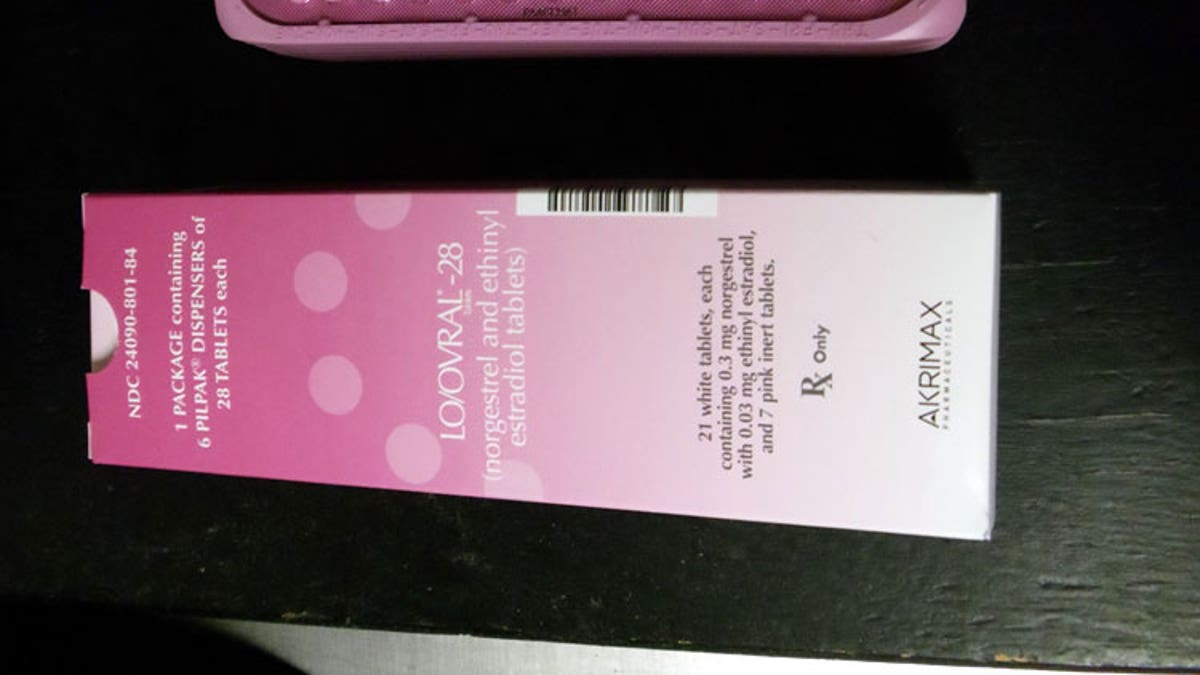
A correctly packaged Lo/Ovral pack. Lo/Ovral was one of the brands involved in the Pfizer recall. (Pfizer)
Pharmaceutical giant Pfizer ordered the recall Tuesday of at least a million oral contractive packets because the pills might not be potent enough to prevent pregnancy.
Pfizer said the recall affected 14 lots of Lo/Ovral-28 tablets and 14 lots of Norgestrel and Ethinyl Estradiol tablets.
The action could leave the pharmaceutical giant vulnerable to a multi-million dollar lawsuit, according to one attorney.
In a statement, Pfizer said consumers exposed to affected packaging should begin using a non-hormonal form of contraception immediately, and patients who have the affected product (lot numbers are provided on the company website) should notify their physician and return the product to the pharmacy.
Dr. Manny Alvarez, senior managing health editor of FoxNews.com, said this recall of birth control pills is one of the largest he can remember in recent years. “If there’s one thing that for years women have relied on, it’s that the sun is going to come out in the morning, you have to pay taxes, and that your birth control pills will work,” he said.
“The efficacy of birth control pills is supposed to be 99.8 percent in preventing pregnancy, especially when women take it as directed. It seems to me that as people rely more on pharmaceutical companies to keep good quality control, we just keep going backwards.”
According to Pfizer’s statement, there are no other health risks associated with the contraceptives – but Greg Gianforcaro, a litigation attorney in New Jersey, told FoxNews.com the risk of unwanted pregnancies alone could be enough to open the company up to serious legal ramifications.
“I think you potentially may see some very significant verdicts [if a woman gets pregnant], because in essence a person takes birth control pills so they don’t have to address issues that – as a result of the pill not working – they’re now going to have to address,” Gianfocaro said.
“In essence,” he explained, “we’re looking at, how do you put a price tag on a child’s education, a child’s upbringing, and other costs – initially, for diapers, then for sneakers, and then 20 years later, college and marriage?”
Gianforcaro said the cases could almost be akin to lawsuits in the past regarding botched vasectomy surgeries where the procedures didn’t take, and men’s wives and girlfriends got pregnant.
“There was once a vasectomy case where the couple sued for $650 million,” Gianforcaro said, “but in that case, the child needed significant care because of severe disabilities. That’s another issue that has to be considered.”
If many women get pregnant as a result of the botched pills, and a class action suit is large enough, Gianforcaro said there is the potential that it could put Pfizer out of business. “I don’t anticipate that happening here, but there’s always the possibility,” he said.
On the opposite end of the spectrum, if no pregnancies result from the botched pills, Gianforcaro anticipates Pfizer’s damages will be “minimal.” However, merely announcing the recall has opened the company up to cases where – even if just a few women taking the pills become pregnant – Pfizer will likely have to pay the price.
“The pills are marketed at nearly 100 percent effectiveness,” Gianforcaro said. “Even if, theoretically, those women fall in the one percent where it would not have been effective, they could argue that it was because all or a significant amount of their pills did not work.”
This does not mean Pfizer is without defenses, Gianforcaro added. “The defenses would be – there has to be proof that the person who got pregnant actually took the birth control pills or there’s the fact that having children could be associated with inherent benefits that outweigh the costs.”
Finally, Gianforcaro said, Pfizer could argue that couples who discovered unwanted pregnancies early enough failed to abort the child, “but then you have issues of couples who don’t want to abort because of physical or moral concerns,” he said.
Regardless of what direction the potential lawsuits take, Alvarez argued that some damage had already been done.
“At the end of the day,” Alvarez said, “this manufacturing error could lead to unwanted pregnancies – and the consequences that could bring. But again, we’re looking at a drug company that has created more mistrust in the health care system.”
A Pfizer spokeswoman told FoxNews.com the company was looking into the matter.








































